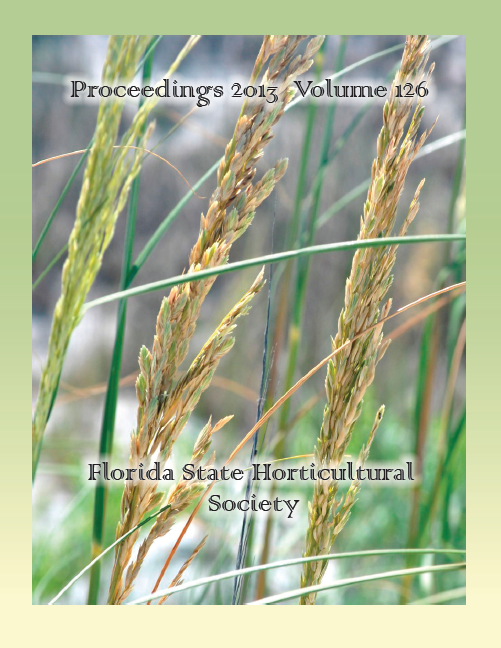Abstract
Fresh orange shelf life begins at harvest and the way in which harvest is conducted may influence fruit quality. Information regarding the effects of physical damage caused by impacts during citrus harvest on postharvest quality is scarce. In Brazil, manual harvest prevails but aided harvest is under trials. “Aided harvest” is performed with auxiliary machines that carry pickers, avoiding long walks and effort in handling heavy bags. However, these machines may produce fruit damage due to impacts. The goal of this study was to relate impact incidence during harvest with the subsequent quality changes during storage in ‘Valencia’ sweet oranges. An instrumented sphere attached to oranges in the tree and harvested among other oranges showed that impacts produced during manual and aided harvests averaged 50 and 500 G (maximum acceleration), respectively. Following the field study, oranges were subjected to 50 and 500 G impacts by dropping them different heights in the laboratory. Those treatments were compared to a control (with no impacts). Fruit were stored for 5 days at 24 °C at 85% RH and evaluated for postharvest quality. Weight loss was 2.18% for control and 2.90% for aided harvest fruit at the end of storage. Ascorbic acid content was negatively affected by aided harvest, resulting in a reduction of 15% over the control. Furthermore, control had significantly higher soluble solids content (SSC) over manual, followed by fruit that were aided harvested. Titratable acidity decreased during storage for all treatments with no differences between harvest types. This study showed that aided harvest significantly negatively affected physicochemical quality, and therefore still needs improvements in the future.

